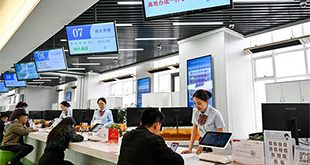
Paris, France | AFP | French President Emmanuel Macron on Sunday spelled out the questions underpinning his “great national debate”, a public consultation aiming to quell “yellow vest” anger after nearly two months of sometimes violent protests.
Macron made his appeal in a “letter to the French” released on Sunday, following the ninth consecutive Saturday of nationwide “yellow vest” rallies which saw an uptick in turnout.
The protests have become the biggest crisis of Macron’s presidency and he hopes that returning to the more participative democracy he promised in his 2017 grassroots campaign will satisfy the protesters’ demands for a greater say in the running of the country, amid accusations that he is too aloof and his policies favour the wealthy.
Macron said the debates are “neither an election nor a referendum” and would revolve around 35 questions on issues such as taxation, democracy, the environment and immigration.
“I intend to transform anger into solutions,” he said in the letter, which had been due to published on Monday, but was released by his office late Sunday.
“Your proposals will help build a new contract for the nation, organising the actions of the government and parliament, but also France’s positions at the European and international levels,” he said.
– The questions –
The questions that will be debated include: “Which taxes do you think should be lowered first?”, “Should some public services that are out of date or too expensive be eliminated?”, “What concrete proposals do you think would accelerate our environmental transition?” and “Should we use more referendums?”.
The immigration question asked: “Once our asylum obligations are fulfilled, do you want parliament to be able to set annual targets?”.
While Macron assured that there were “no forbidden questions”, he did say that the right to seek asylum “could not be questioned”.
He also said the government would not revisit steps taken “to encourage investment and make work pay more”.
One of the frequent demands from the protesters, who are mostly from rural or small-town France, is a repeal of Macron’s move last year to cut the ISF “fortune tax”, which was previously levied on high-earners.
“We will not pursue tax cuts without lowering the overall level of our public spending,” Macron said in the letter.
Macron said he would “directly report” on the consultation in the month after the debates, which are to run from January 15 to March 15.
The president will embark on a tour of town-hall meetings around the country, the first of which will be held on Tuesday with local mayors in Bourgtheroulde in northwest France.
 The Independent Uganda: You get the Truth we Pay the Price
The Independent Uganda: You get the Truth we Pay the Price



